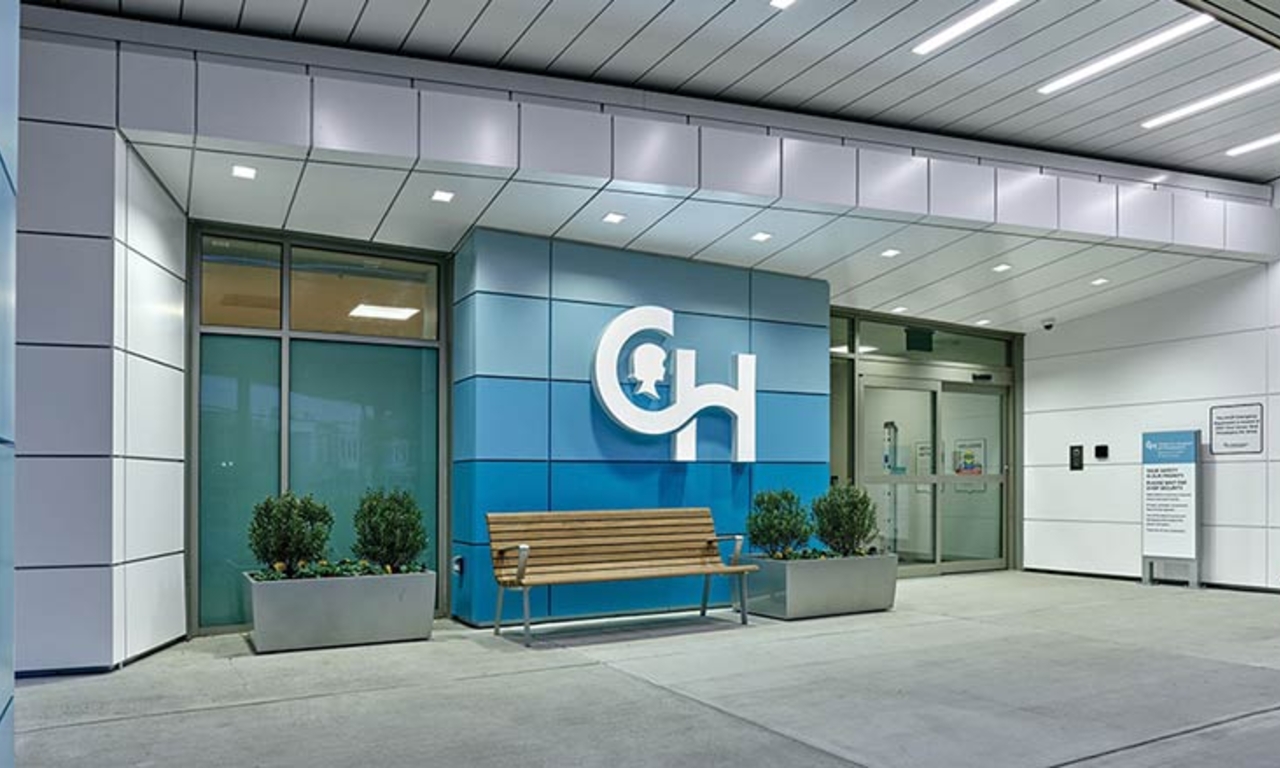
By Zan Hale
Warning: This article mentions suicide.

A 5-year-old planning to run into traffic because of stress at home. A 6-year-old living in fear after witnessing a shooting. A suicidal teen waiting more than six weeks for treatment.
These are all real children who came to Children’s Hospital of Philadelphia for help. It is for children like them that CHOP opened the Behavioral Health and Crisis Center (BHCC) in West Philadelphia in February 2024.
Opening in phases, the BHCC will offer 46 private inpatient psychiatric beds and a 24/7 walk-in crisis response center for immediate stabilization and treatment. Children and youth are cared for by a skilled team of psychologists, psychiatrists, mental health nurses, counselors, and recreation and creative art therapists. The team works together to guide children on a path of healing so they can return to their homes, schools, families and friends and achieve their full potential.
“Child and adolescent mental health has been experiencing a significant crisis since before the pandemic,” says Kristen Bielecki, PhD, inpatient Clinical Director. “We are honored to offer essential services that will improve access to psychiatric care in West Philadelphia and beyond.”
Strengths-based treatment philosophy

The BHCC’s approach to treatment focuses on each child’s strengths and abilities — versus problems or failures — as a path to recovery. As an example:
“C,” a 15-year-old with severe depression, is admitted to a BHCC inpatient unit after he attempts to die by suicide. Initially, he doesn’t engage with others in the center. During art therapy, he ignores the group activity, but draws on his own. The art therapist notes this and, after sharing her observation with C’s clinical team, the group builds on this strength.
C draws his feelings and sketches instead of writing. Through his art, C gradually opens up, participates and, with his medical team’s help, integrates art into coping plans to manage his depression.
Families at the forefront

A second key BHCC philosophy is that family members are integral to treatment. Through education, counseling and family therapy sessions, BHCC staff help families understand what is going on with their child and how best to communicate with them.
“It is our team’s heartfelt desire that when a child and their family are within our walls, a seed of hope and healing will be planted, and the seed will form roots and grow,” says Maryam Muhammad, DSocSci, MPH, Crisis Center Clinical Director. “The BHCC is about much more than responding to crises — it’s about transformation.”
If you are interested in supporting the BHCC programming, please contact Douglas Kleintop at kleintopd@chop.edu.
By Zan Hale
Warning: This article mentions suicide.

A 5-year-old planning to run into traffic because of stress at home. A 6-year-old living in fear after witnessing a shooting. A suicidal teen waiting more than six weeks for treatment.
These are all real children who came to Children’s Hospital of Philadelphia for help. It is for children like them that CHOP opened the Behavioral Health and Crisis Center (BHCC) in West Philadelphia in February 2024.
Opening in phases, the BHCC will offer 46 private inpatient psychiatric beds and a 24/7 walk-in crisis response center for immediate stabilization and treatment. Children and youth are cared for by a skilled team of psychologists, psychiatrists, mental health nurses, counselors, and recreation and creative art therapists. The team works together to guide children on a path of healing so they can return to their homes, schools, families and friends and achieve their full potential.
“Child and adolescent mental health has been experiencing a significant crisis since before the pandemic,” says Kristen Bielecki, PhD, inpatient Clinical Director. “We are honored to offer essential services that will improve access to psychiatric care in West Philadelphia and beyond.”
Strengths-based treatment philosophy

The BHCC’s approach to treatment focuses on each child’s strengths and abilities — versus problems or failures — as a path to recovery. As an example:
“C,” a 15-year-old with severe depression, is admitted to a BHCC inpatient unit after he attempts to die by suicide. Initially, he doesn’t engage with others in the center. During art therapy, he ignores the group activity, but draws on his own. The art therapist notes this and, after sharing her observation with C’s clinical team, the group builds on this strength.
C draws his feelings and sketches instead of writing. Through his art, C gradually opens up, participates and, with his medical team’s help, integrates art into coping plans to manage his depression.
Families at the forefront

A second key BHCC philosophy is that family members are integral to treatment. Through education, counseling and family therapy sessions, BHCC staff help families understand what is going on with their child and how best to communicate with them.
“It is our team’s heartfelt desire that when a child and their family are within our walls, a seed of hope and healing will be planted, and the seed will form roots and grow,” says Maryam Muhammad, DSocSci, MPH, Crisis Center Clinical Director. “The BHCC is about much more than responding to crises — it’s about transformation.”
If you are interested in supporting the BHCC programming, please contact Douglas Kleintop at kleintopd@chop.edu.